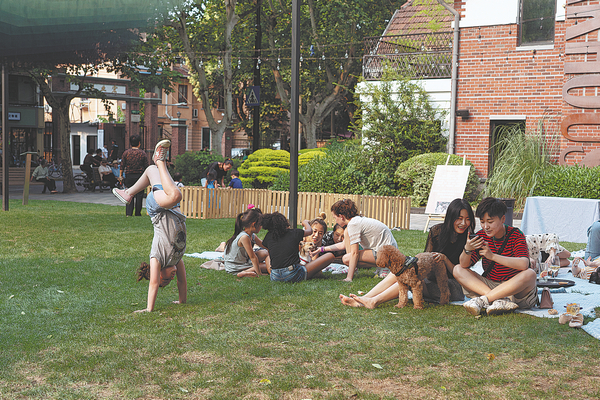New approach
Refurbishing old buildings and connecting residents are key elements of urban renewal in Shanghai, Xing Yi reports.


Hot trend
Urban renewal has become a hot topic among real estate developers and architecture studios as Shanghai's development plan now hinges greatly on renovating existing structures rather than building new ones.
In June, Shanghai established the country's largest urban renewal fund worth a whopping 80 billion yuan ($11.7 billion) that would be channeled toward relevant projects. Two months later, the city published the draft of a 64-article regulation on urban renewal to solicit public opinion.
Qiao Zhengyue, deputy secretary-general of the committee in charge of historical architecture protection within the Architectural Society of Shanghai, says public attitude on urban renewal has changed significantly since 2004.
"There were few events related to urban renewal back then, but this year I've already attended several seminars organized by experts and industry insiders," says Qiao, who has published five books on heritage buildings in Shanghai.
"People now flock to historical buildings when their renovation projects are completed. The city has done a good job of preserving historical architecture while giving old buildings and spaces new life at the same time."
Qiao herself frequents such spaces, among which is the Tsutaya bookstore in the popular Columbia Circle, another heritage spot in Changning district that was once occupied by the Shanghai Institute of Biological Products and closed to the public.
"Historical buildings must be used by the people to be protected," she says. "With the introduction of the new regulation, I hope urban renovation will be carried out in a more orderly manner, and more attention would be given to the residents living in the area where urban renovation will take place."
Echoing Qiao, Cibic says: "I'm touched by the coexistence of differences in Shanghai. Venice has been destroyed by the real estate industry and is now just a city for vacationing. Life there has disappeared. You will lose a lot if you remove the regular people from the equation. I appreciate life in Shanghai more. The community is my living room."
Mei Linhan and Fan Xuehan contributed to the story.




































